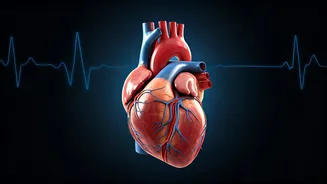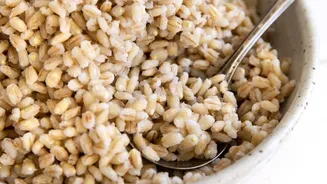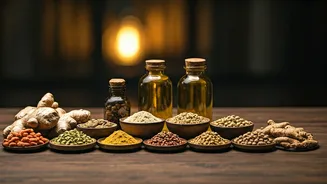Embrace Regular Exercise
Regular physical activity is vital for improving blood circulation. Exercise helps to strengthen the heart and blood vessels, making them more efficient
at transporting blood throughout the body. Aim for at least 30 minutes of moderate-intensity exercise, such as brisk walking, cycling, or swimming, most days of the week. This boosts blood flow and oxygen supply to cells, promoting overall vitality. Incorporate exercises that work the legs, as they are crucial for venous return. Simple movements like walking, jogging, or even just standing up and moving around for short periods throughout the day can make a significant difference. Regular exercise not only enhances circulation but also helps maintain a healthy weight and reduces the risk of heart disease and other chronic conditions, creating a positive feedback loop for better health. It doesn't require a gym membership; simple activities can be seamlessly integrated into your daily life.
Prioritize a Healthy Diet
Consuming a nutritious diet is another cornerstone of healthy circulation. Include foods that boost circulation, such as those rich in omega-3 fatty acids, like fatty fish, flaxseeds, and walnuts. These foods help reduce inflammation and improve blood vessel function. Incorporate foods high in antioxidants, such as berries, leafy greens, and citrus fruits, as they protect against damage to blood vessels. Limit intake of processed foods, saturated fats, and excessive sodium, as these can contribute to poor circulation. Staying hydrated is also essential, as dehydration can thicken the blood, making it harder to circulate efficiently. Eating a balanced diet not only promotes good circulation but also supports overall health and well-being. A diet rich in fresh produce and lean proteins helps maintain healthy blood vessels and optimal bodily functions. Consider consulting with a nutritionist to create a tailored dietary plan.
Stay Hydrated and Active
Maintaining proper hydration is crucial for optimal blood circulation. Adequate water intake helps keep the blood volume at an appropriate level, allowing it to flow smoothly through the vessels. Dehydration can lead to thicker blood, which makes it harder for the heart to pump and for blood to reach all parts of the body efficiently. To ensure you're adequately hydrated, aim to drink enough water throughout the day. Monitor your urine color; it should be pale yellow. Besides staying hydrated, being active is important. Avoid prolonged periods of sitting or standing, as these positions can restrict blood flow in the legs. Take breaks to move around, stretch, and walk, if you have a desk job. For those who travel frequently, consider taking short walks during layovers or making a conscious effort to move in your seat. Incorporate simple exercises that stimulate blood flow.
Address Nutrient Deficiencies
Certain nutrient deficiencies can contribute to poor blood circulation. Three common deficiencies in Indians include iron, vitamin B12, and vitamin D. Iron is essential for red blood cell production, which carries oxygen throughout the body. Low iron levels can lead to anemia, impairing blood flow. Vitamin B12 is vital for nerve function and the production of red blood cells. Deficiency can cause fatigue and poor circulation. Vitamin D plays a role in blood vessel health. Many individuals in India are deficient in vitamin D due to limited sun exposure and dietary habits. To overcome these deficiencies, consume a balanced diet rich in iron-rich foods like leafy greens, lean meats, and fortified cereals. Include foods high in vitamin B12, such as dairy products, eggs, and fortified foods. Prioritize sun exposure and consider taking vitamin D supplements. Consult a healthcare professional to identify and address any deficiencies.
Quit Smoking and Manage Stress
Smoking is a major contributor to poor circulation, damaging blood vessels and increasing the risk of cardiovascular diseases. Quitting smoking is one of the most effective steps you can take to improve your vascular health. Avoid exposure to second-hand smoke as well. Another important factor is managing stress, as chronic stress can constrict blood vessels and impair blood flow. Practice stress-reduction techniques, such as meditation, deep breathing exercises, yoga, or spending time in nature. Engage in activities you enjoy, like hobbies or spending time with loved ones. Ensure you get enough sleep, as sleep deprivation can increase stress levels. Seek professional help if needed, like therapy or counseling, to manage stress effectively. Combine these lifestyle changes to maximize improvements in blood circulation and overall well-being. Consider integrating relaxation techniques like meditation into your daily routine to help alleviate stress and promote cardiovascular health.















